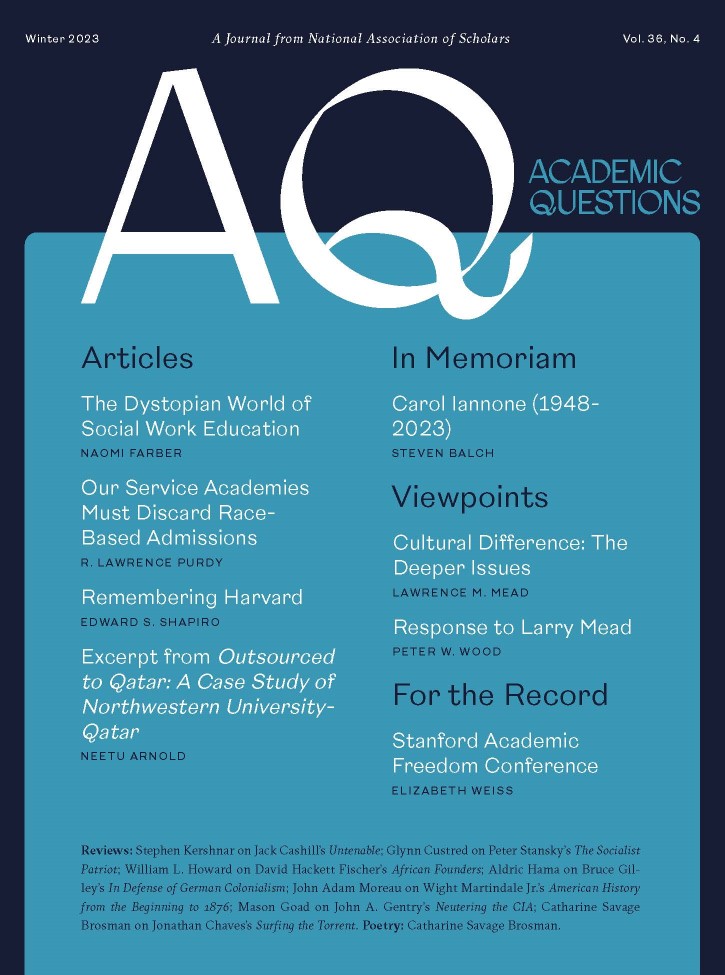Surfing the Torrent, Jonathan Chaves, Resource Publications, 2023, pp. 126, $14.00, softcover.
To create a body of worthy poetry today (to be the ideal reader of such also, perhaps) requires both experience and learning: not detailed learning about poetry (although such is desirable), but solid, sustained acquaintance with, even mastery of, areas of human endeavor. The mind needs some such foundation for serious literary endeavor. While verbal facility is desirable, it alone cannot produce lasting poetic value. “Cleverness [is] no match for soul,” writes Jonathan Chaves in his homage poem “Remembering Frost.”
His collection Surfing the Torrent illustrates the point. Professor of Chinese at The George Washington University and honored for his translations, he also writes fine poems in English; some have appeared in Academic Questions, Chronicles, and elsewhere. In addition to his Sinological erudition, he is acquainted with ancient and modern Greece, ancient India, and the Christian tradition. Yet one does not read his verse simply for lore, but for its broad understanding, based on sympathetic knowledge—and personal vision.
To say that poetry in America now, though honored by public budgetary support and widely heralded, is largely superficial and ephemeral is not unfair. Moreover, in the schools especially, it has been commandeered by “progressive” forces. Like other rhetorical performances, a poetic flash in the pan, a pleasing act of verbal prestidigitation, a strident accusation of injustice, a cry on the rooftops for change may attract admiration and assent; they are not in themselves good poetry. Poetry is an art.
Still less should artistic value be attributed to free verse that is merely cut-up prose, with no rhythm and little craft otherwise. (Craft involves sound effects, notably beat—essential—structure of line and stanza, and, above all, images). When the High Modernists (whose writing is important and not without merit) ushered free verse into dominance more than a hundred years ago, they unleashed terrible trends, which, uncurtailed, have damaged the genre. Nearly empty of sense, solipsistic, without appealing use of language, much contemporary writing called poetry is imitative, facile, accusatory. Of course, bad poetry has always been around. But new means of disseminating it, wealth to underwrite and popularize it, and the general degradation of culture have made a difference.
Despite—likely because of—these conditions, formal poetry has regained ground, awaking renewed interest. I have argued in these pages how important poetry has been since Homeric times in creating and preserving what we call civilization. It both expresses and creates human values and is thus of perennial worth. Like all art, it works by way of form. Faulkner asserted that the novel was the easiest narrative genre, the short story next; poetry, he said, was more challenging than either. It may be more rewarding, through condensation of insight. A product of mind, it can also train the mind in working with wholes versus parts, explicit vs. implicit, abstract vs. concrete, symbol vs. thing symbolized. It teaches discrimination.
Professor Chaves, who calls himself a Neo-Formalist, has an eclectic poetic palette, using both controlled free verse and traditional rhyme and meter, in standard patterns. His book is dedicated to his wife, Anna, a Greek native, who, he says, made him “happier than I ever thought I would be.” The poems are grouped into two sections, “Greece” (free-verse poems written in 1978) and “Journey and Destination” (poems of various dates and forms). The Greek poems are highly evocative and sensuous—tastes, aromas, sights, sounds, textures leading to the feel of being there. They call on the ancient four elements and thus suggest the immemorial, even the primitive (but without anthropological overtones). The initial poem, blending concrete and abstract and illustrating effective line breaks, begins thus:
In the sunlight captured in her hair than which nothing
is brighter, more golden,
more like waves of silk,
I see impossibly white houses painted against flat cliffs
or blinding flashes of love on inconceivable waters.
Subsequent lines suggest how the woman and the setting are assimilated, each mysterious, having a body, a spirit. The title of “Landscape of Thought,” expresses a similar blend of material and mental. In “Rough Ocean,” the speaker says, “My soul could be this seagull / fighting the wind, or this boat / with its red anchor / like a heart, / in harbor today because it is too windy / for fishing.” In “A Festival,” “First the mountains called us / and we came to them— / entering the dream / of a flock of sheep / as they slept beneath a tree.” “Do you remember the day of the tomatoes?” the speaker asks in “Gyzi.” Glancing down an incline, he sees them on a merchant’s cart in all their color, like the sun “if it were something you could expect to eat.” Though on an errand, he and his companion change course to find the glorious vision. “To the Master of Ships” begins:
These ships are muscles of color,
a joy pulled up on the strand,
tough links of earth, sea, and sky
hauled in by sailors in white . . . .
The poem then addresses the master, an old man of eighty-two years, whose eyes are a dazzling blue, near his white sails, “folded wings of masts.” Simplicity such as this, which Chaves praised in Frost, bears weight.
The second, longer section includes both free verse and blank verse (handled skillfully), poems in quatrains, sonnets (with variable stanza and rhyme patterns), an “acrostic eulogy,” and villanelles, on a wide range of subjects, of timeless appeal. Occasional absence of punctuation in the free verse is scarcely noticeable, thanks to good structure. In “Three Sonnets on Memory,” the poet senses that “the end-game / Takes curing.” There are ekphrastic poems inspired by Chinese art. Several excellent satires, of serious import, show that the mode is still flourishing.
In one, a feminist assistant dean appears, and big-corporation purveyors of artificial intelligence announce, via a joint message, that they will erase everything that has been taken for knowledge, “to be succeeded by Our own worldview, / So that, lecteurs! each single one of you / Will think as We do: We, the Master Race.”
Many poetic delights and much serious reflection are found here. Consider a sober love poem called “Rosemont Manor”:
Climb the steps that lead to Rosemont Manor;
View the Owl perching just above.
He’s stood for death, he’s also stood for wisdom;
He’s never, in my knowledge, stood for love.
Yet the wise owl may remind us that love and marriage require sacrifice.
This collection can be useful in today’s classrooms. Its references range among times and, especially, cultures—of Europe, Asia, and the Indian Sub-Continent. “Wanderer in China,” with its epigraph, “In the manner of Wordsworth,” makes the point. The poems offer prima facie support for poetic tradition, still lively. They make many points germane to social, philosophical, and theological matters. “Prologomena to the Apocalypse,” a satire, could take its place in classes on modern philosophy or political thought. The cleverly rhymed couplets presenting rants by Marx, Darwin, Freud, and Nietzsche are spot-on; the irony is just right. At the end, a figure appears, raising high a rod like Aaron’s and announcing “Nietzsche’s dead! I’m God.” That is serious stuff, as are “A Ballade of Wavering Faith” and the “Two Sonnets for Fr. John Witek, S.J.”
The publishers of Surfing the Torrent would do well to issue a second printing, with corrections of numerous errors, particularly those that spoil “Welcome Back to the Season of Dripping Trees,” otherwise lovely.
Catharine Savage Brosman is professor emerita of French at Tulane University; [email protected]. She is the author of fifteen collections of poetry, the latest of which is Aerosols and Other Poems (2023) from Green Altar Books, an imprint of Shotwell Publishing, Brosman’s poetry has appeared regularly in AQ, along with her article “Poetry and Western Civilization,” in the spring of 2023.
Photo by Álvaro Serrano on Unsplash














